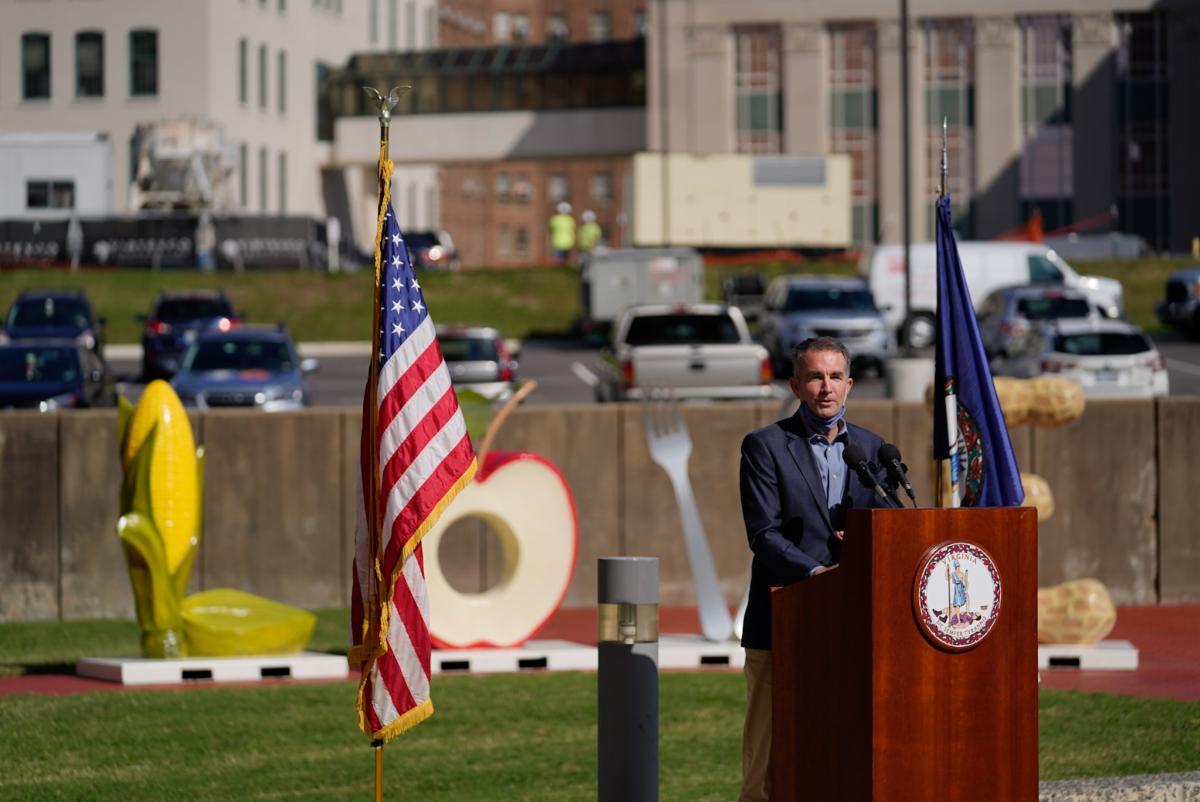Governor Northam Introduces Roadmap to End Hunger in Virginia
Governor Ralph Northam today released the inaugural Virginia Roadmap to End Hunger, which establishes a unified set of goals and strategies to prioritize food security during the current public health emergency and beyond. The Roadmap was produced by Governor Northam’s Children’s Cabinet. In Virginia and across the country, food insecurity rates are increasing, with an estimated 445,000 additional Virginians experiencing food insecurity because of the ongoing COVID-19 pandemic. Prior to the onset of this public health crisis, approximately 850,000 Virginians were food insecure, including 250,000 children. “This pandemic has created challenges for the entire food system and added new burdens on thousands of Virginia families,” said Governor Northam. “Since the beginning of our Administration, we have prioritized addressing nutrition and food insecurity, and that work has never been more relevant than it is today. The Virginia Roadmap to End Hunger looks beyond our current struggles and outlines a way forward to end hunger in the Commonwealth and ensure equitable access to healthy, affordable food for all Virginians.”
The Virginia Roadmap to End Hunger lays out opportunities to reduce food insecurity in the Commonwealth, and critical next steps to develop policies, programs, and partnerships to benefit Virginia’s children and communities. “Keeping all Virginians healthy requires our commitment to keeping them nourished,” said First Lady Pamela Northam. “This is an important resource that supports food access for all Virginians including our littlest learners, students, families, and seniors. I am grateful to the members of the Children’s Cabinet working group who have worked diligently to create the Roadmap as a path forward.” The COVID-19 pandemic has brought renewed attention to the broader social determinants of health including food security. The Virginia Roadmap to End Hunger includes goals and strategies to:
- Expand child nutrition programs
- Increase participation in the Supplemental Nutrition Assistance Program (SNAP) and Women Infant and Children (WIC) Program
- Increase nutrition support for seniors
- Grow access to local food for schools and families
- Strengthen connections between food access programs and the healthcare sector
- Encourage food and agriculture investments in food deserts and marginalized communities
- Amplify public awareness of hunger in Virginia and support information sharing across public and private sectors
- Support community organizing to combat food insecurity and hunger
“Over the past seven years, Virginia has become a national model for closing the hunger gap, but there is still much work to be done,” said Dorothy McAuliffe, Chair of the Virginia No Kid Hungry Campaign and former First Lady of Virginia. “It will require a commitment to collaboration at the state and local level to ensure we have equitable access to nutritious foods and equal opportunity to grow and thrive. The Roadmap to End Hunger builds on our past successes and serves as a foundation to a food secure future for the Commonwealth.”
To create the Roadmap, the Northam Administration, in partnership with the Virginia Department of Social Services and the Federation of Virginia Food Banks, held listening sessions to gather input from stakeholder groups, community leaders, and Virginians that work in and are impacted by the food system. The seven listening sessions were held in Abingdon, Roanoke, Danville, Hampton, Fairfax County, Norfolk, and Richmond. “While we have made significant progress in recent years and over the last seven months responding to increased poverty and food insecurity, too many Virginians continue to struggle with hunger,” said Virginia Department of Social Services Commissioner S. Duke Storen. “This Roadmap outlines the key strategies that state government and every Commonwealth community can take to ensure that Virginians receive the nutrition they need to thrive. We must double down on our work to turn the Roadmap into meaningful action.”
“Collectively, Virginia’s seven regional food banks represent the largest charitable response to hunger in the Commonwealth, providing 120 million pounds of food to nearly one million individuals each year,” said Eddie Oliver, Executive Director of the Federation of Virginia Food Banks. “In a state as rich in resources as ours, there is simply no reason for food insecurity to exist. The Roadmap gives us the template for how we can better leverage public and partnerships and work together to create a food system that works for everyone.” The Virginia Roadmap to End Hunger emphasizes the importance of federal, state, and local policies and programs being in authentic partnerships with grassroots organizations, which are driven by the lived experiences of food insecure families. The Roadmap highlights the Richmond Food Justice Alliance and Cultivate Charlottesville as two examples of advocacy groups organizing at the local level to improve food access for their communities.


